|
It has been over two months since my last BLOG on COVID-19 vaccines. Since that time millions of people in several different countries have been vaccinated, new vaccines have been approved for use, and new virus variants have emerged. This blog is about the latest developments on the COVID-19 vaccine front. Johnson & Johnson (J&J) Vaccine: The J&J vaccine was given Emergency Use Authorization by the F.D.A. on February 27, 2021. According to Johnson & Johnson’s press release, the vaccine was 72% effective at preventing moderate to severe COVID-19 infections in the U.S. (https://www.jnj.com/johnson-johnson-announces-single-shot-janssen-covid-19-vaccine-candidate-met-primary-endpoints-in-interim-analysis-of-its-phase-3-ensemble-trial). What this means is the vaccine prevented all illness, including mild symptoms, in 72% of the recipients of the vaccine. This may sound disappointing in comparison to the 94-95% efficacy of the Pfizer-BioNTech and Moderna vaccines, but it was highly effective at limiting serious disease. J&J’s vaccine was 85% effective overall at preventing serious illness across all regions that it studied (U.S., Argentina, Brazil, Chile, Columbia, Mexico, Peru, and South Africa). More importantly, the vaccine demonstrated complete protection against COVID-19 related hospitalizations and deaths, the true benchmarks of the success of this vaccine. The vaccine had an overall efficacy rate of 64% against the more virulent South African strain, but an 82% rate against serious illness. It is important to note that the J&J trials were conducted when more variants were circulating in the population than when the Pfizer-BioNTech and Moderna trials were being conducted. This could account for the reduced efficacy being reported in the U.S. and elsewhere. Here are the key attributes of this new vaccine:
The J&J vaccine is a breakthrough. It doesn’t need sophisticated freezers for transport and storage, making it accessible to remote and underserved areas, as well as in second and third world countries. The fact that it is effective after a single dose makes it a great choice when scheduling a second shot is problematic, such as in homeless populations, the homebound, migrant farm workers, and hard to reach populations around the world. If I was the vaccine czar, the J&J vaccine would be reserved for these vulnerable populations. Pfizer-BioNTech Vaccine: On February 12, 2021, Pfizer-BioNTech announced that the U.S. government had exercised its option to purchase an additional 100 million doses of their vaccine. This brings the total number of doses to be supplied to the U.S. to 300 million, enough for 150 million people. Here are some recent developments:
Moderna Vaccine: On February 11, 2021 Moderna announced that the U.S. government had agreed to purchase an additional 100 million doses of its vaccine. This brings the total confirmed order commitment to 300 million doses, enough to fully vaccinate 150 million Americans. Moderna is on track to deliver the first 100 million doses in the first quarter of 2021, the next 100 million in the second quarter, and the new order of 100 million doses by the end of July 2021. Even without any new vaccines becoming available, the U.S. now has enough contracted vaccines to cover all of its eligible citizens, and then some. Here are some recent developments:
AstraZeneca/University of Oxford Vaccine: This vaccine was first approved for emergency use in the United Kingdom on December 30, 2020 for individuals 18 years of age and older. The vaccine requires a two-dose regimen, with an interval of between four and twelve weeks between doses. There has been some debate about the actual efficacy of the vaccine, with ranges from 62-82%. But clinical trials in the United Kingdom have shown the vaccine to be safe and highly effective at reducing hospitalizations and deaths. Because of the confusion over some of the reported data, the U.S. is conducting a trial of its own. Approval in the U.S. may still be a few months away. The vaccine can be transported and stored at normal refrigeration temperatures (36-46°F) for at least six months, making it a good candidate for use in 2nd and 3rd world countries. Here are some recent developments:
Novavax: On January 28, 2021, Novavax announced that its vaccine demonstrated 89% efficacy in a Phase 3 clinical trial conducted in the United Kingdom (https://ir.novavax.com/news-releases/news-release-details/novavax-covid-19-vaccine-demonstrates-893-efficacy-uk-phase-3). Preliminary studies suggest that it is very effective at preventing severe disease from the South African strain of COVID-19. Phase 3 clinical trials are underway in Mexico and the U.S. and should be concluded by the end of March. The vaccine requires two-doses, but doesn’t require the strict storage requirements of the Pfizer-BioNTech or Moderna vaccines. In September Novavax entered into an agreement with a major Indian vaccine manufacturer that could produce up to 2 billion doses per year. The U.S. has an agreement to purchase up to 110 million doses, with most of the remaining doses going to the COVAX Alliance. Look for this vaccine to be approved for use in the second half of 2021. There are currently 71 COVID-19 vaccines in clinical trials on humans, 20 of these have reached large scale Phase 3 trials around the world. In addition to the five vaccines that I detailed above, China has two vaccines it has approved for use, Russia has one vaccine, as does India. Virus Variants: The longer the novel coronavirus circulates, the more people that become infected, giving the virus opportunities to mutate into more dangerous variants. Any new variant has the potential of being more contagious, result in more severe illness, and be resistant to currently available vaccines. This is why it is so important to speed up the rate of vaccinations and to continue safe practices, until herd immunity is reached. Widespread testing for COVID-19 is very important to monitor the development and spread of new variants. Here are some of the new variants which have recently been identified:
Vaccine Equity: As of this writing approximately 240 million doses of vaccine have been administered around the world (https://www.cnn.com/interactive/2021/health/global-covid-vaccinations/). According to the United Nations, ten countries administered 75% of all vaccines, and 130 countries have yet to receive a single dose. The COVAX Alliance, led by the World Health Organization, is working with rich countries to provide vaccines to poor ones. But it is off to a slow start. COVAX delivered its first shipment of 600,000 doses of the AstraZeneca vaccine to Ghana on February 24, 2021. Ghana is one of 190 countries which have signed up to receive vaccines through the alliance. The COVAX Alliance currently has agreements with AstraZeneca and Novavax for COVID-19 vaccines, but the numbers are far short of what is needed. It is important to remember that no one is immune from COVID-19 until we are all immune. What We Still Don’t Know: We are a year into this pandemic, vaccines have only been available in limited supply for about two months, and there are a lot of unanswered questions. Once vaccinated, are people still able to spread the virus? Once vaccinated, how long will immunity last? If you had COVID-19, how long does immunity last? When will herd immunity be reached? Well, this is the real question, and we all need to be patient.
As of today, about 14.6% of the U.S. population has received at least one shot of vaccine, and a tiny fraction of the world’s population has been vaccinated. It is important to get vaccinated when it is your turn, but it is also important to continue to wear your face mask, practice social distancing and continue using good hygiene. We can't afford to let our guard down now that there is light at the end of the tunnel. We won't know that herd immunity has been reached until new cases of COVID-19 infections are rare. The speed with which the various COVID-19 vaccines have been developed and gotten into peoples’ arms is truly remarkable. All of the vaccines currently available in the U.S. are highly effective at minimizing serious illness and death. Coronaviruses have been circulating within the human population for centuries, and the coronavirus that causes COVID-19 will be with us for a long time. The sooner that the majority of the world’s population becomes vaccinated, the sooner the pandemic will be over, and the quicker we will all return to a semblance of “normalcy”. If you enjoy reading this type of commentary please subscribe to my blog and tell a friend. You will receive an email notification when new blogs are posted. The email will come from the site’s email: armchairamerican1776 @gmail.com. Thanks, Armchair American
0 Comments
To no one’s surprise Donald Trump was acquitted on February 13, 2021 of the charge of “incitement of insurrection” at his second impeachment trial. Seven Republican Senators, along with all the Democrat Senators, voted to convict. But seventeen were needed. For a more detailed explanation of the 2nd impeachment of Donald Trump, please refer to my January 29, 2021 post "Is the Second Impeachment Trial of Donald Trump a Good Idea?" Here are my key takeaways from the impeachment trial: Political Gamesmanship: Mitch McConnell is no fan of Trump and he would love to rid the party of him. But he loves his position and his power even more. McConnell is first and foremost a party man, and he is focused on the 2022 mid-term elections with the goal of retaking the Senate and possibly the House. Like most of his Republican colleagues, McConnell went on record by voting that it is unconstitutional to impeach a president who is already out of office. This was a calculated move to provide his colleagues with political cover. By voting to acquit on constitutional grounds, a senator could satisfy Trump’s loyal supporters, and not turn off those Republican voters who were repulsed by Trump’s actions. This is exactly what McConnell did with his post-trial statement blasting Trump: “Former President Trump’s actions preceding the riot were a disgraceful, disgraceful dereliction of duty. There’s no question, none, that President Trump is practically and morally responsible for provoking the events of the day. No question about it. The people who stormed this building believed they were acting on the wishes and instructions of their president.” Wow, the House managers could have used McConnell to make their case against Trump. But alas, McConnell knew that there weren’t enough Republican votes to convict Trump, and he wasn’t about to jeopardize his standing in the party by voting with the opposition. It's Still Donald Trump’s Party: State Republican parties were quick to censure Senate Republicans who voted to convict Trump. This follows the condemnation received by Republican House members in their home states for voting for impeachment. Even party stalwart Liz Cheney was censured by the GOP in her home state of Wyoming. In his unrepentant way, Donald Trump blasted the trial as another phase of the greatest witch hunt in history. In a statement released shortly after being acquitted he said, “Our historic, patriotic and beautiful movement to Make America Great Again has only just begun”. This doesn’t sound like a guy who is going to fade into the background, and Republican politicians who ignore him, do so at their own peril. Many Unanswered Questions Remain: Unfortunately, the trial did not provide the truth and accountability that Chuck Schumer had hoped for. In the words of one of the House Managers, Joaquin Castro, “There’s a lot we don’t know yet about what happened that day”. Most of the evidence presented was based on news reports and social media postings. But not to worry. Yesterday Speaker Nancy Pelosi announced that Congress will establish an independent commission to investigate the attack on the Capitol. I doubt that the investigation will turn up anything that will put Donald Trump in criminal jeopardy. But the lapses in security at the Capitol need to be investigated, if for no other reason than to prevent another horrific incident like that on January 6, 2021. If you enjoy reading this type of commentary please subscribe to my blog and tell a friend. You will receive an email notification when new blogs are posted. The email will come from the site’s email: armchairamerican1776 @gmail.com.
Thanks, Armchair American There has been a lot written in recent weeks about a few high-flying stocks, most notably GameStop. The wild stock price fluctuations have been driven by speculative trading on app-based trading platforms, particularly Robinhood. It is a fascinating tale involving hedge funds, chat rooms, day traders, investing nerds seeking revenge on Wall Street insiders, financial market turmoil and Congressional condemnation. Already there are book deals in the works and movie scripts being written. I will only scratch the surface of this drama by focusing on Robinhood and the danger of making the purchase of high-risk financial instruments as easy as ordering a cup of coffee on your smart phone. GameStop: To understand the recent spotlight on Robinhood and the wild stock price fluctuations in GameStop (GME), a little background is necessary. GameStop is a brick-and-mortar business, located mostly in shopping malls, which mainly sells video games and gaming equipment. In recent years the business has been hit hard as shoppers have abandoned shopping malls and video gaming has moved online. Some Wall Street hedge funds have sought to benefit by GameStop’s plight by betting against its stock. They did this by selling the shares of the stock short, or shorting the stock. Shorting a stock is when an investor borrows shares and immediately sells them, hoping to buy them later at a lower price, return them to the lender and pocket the difference. The important thing to know here is that the hedge funds who shorted the stock make money when the stock price falls, and lose money when the stock price rises. At one point last fall, GameStop was the most heavily shorted stock on Wall Street. Then came along some other investors who thought that GameStop still had value, and started talking it up on internet chat rooms, claiming that all the short selling was overblown. Reddit: ( https://www.reddit.com/): Reddit is a very popular website which is home to thousands of online communities with millions of followers. These communities or forums are known as “subreddits”. The subreddit at the center of all the drama is “WallStreetBets”, (https://www.reddit.com/r/wallstreetbets/). It was developed as a community for “people to talk about high-risk trades in an unapologetic way, and for people to make some short-term money with disposable income”, according to founder Jaime Rogozinski. Beginning last summer and accelerating into the fall, posts started appearing on the site laying out the case that GameStop was still a viable business and its stock price was undervalued. Subsequent posts began touting the added benefit of pushing up the price of GameStop shares to hurt the Wall Street hedge funds at their own game. It was a way of enacting revenge on Wall Street insiders who had never been punished for their role in the Great Recession. The price of GameStop shares began to rise as more and more people bought into this thesis. So how does all this fit in with Robinhood and the legion of small investors on its platform? Many of the users of Robinhood were following the threads on WallStreetBets and wanted in on the action. Membership in WallStreetBets, as well as use of online trading platforms increased significantly as people were under COVID-19 lockdown restrictions. In recent months membership on WallStreetBets has surged to over 8.5 million. Robinhood: This online trading platform was introduced in 2015 and offers commission-free trading in stocks, ETFs (exchange traded funds), stock options and cryptocurrencies (Bitcoin is the most notable). In addition to no trading fess, there are no minimum balance requirements to maintain an account. The lack of fees and user-friendly smart phone app has attracted a large following of young users. As of last May, Robinhood had over 13 million accounts. The average age of the account holder is 31, half of whom had no previous experience trading stocks. According to Robinhood’s website ( https://robinhood.com/us/en/), “We’re on a mission to democratize finance for all”. “At Robinhood, we believe the financial system should be built to work for everyone. That’s why we create products that let you start investing at your own pace, on your own terms”. Setting up an account on Robinhood is quick and easy, and it usually takes less than an hour to activate. If Robinhood is Free to Use, How do They Make Money? Robinhood’s business model encourages lots of stock trades, which is how they make most of their money. Wall Street firms pay Robinhood to send their buy and sell orders to them. These “market maker” firms do the actual buying and selling of the stocks, and make money by finding better prices in the broader markets than what Robinhood customers paid. This is perfectly legal, but Robinhood needs large trading volumes on its platform to be sustainable. According to research firm Alphacution, ( https://alphacution.com/tag/robinhood/), in the first three months of 2020, Robinhood users traded nine times as many shares as E-Trade customers, and forty times as many shares as those holding accounts at Charles Schwab. During that same time period, Robinhood users traded eighty-eight times as many options contracts as did the average Charles Schwab customer. For $5/month and an average minimum balance of $2000, you can establish a Robinhood Gold account. This account allows the user to purchase stocks on margin. This simply means that Robinhood will lend you money to purchase stocks, and charge you interest on the money. Purchasing stocks using borrowed money is very risky. It can magnify your losses as well as your gains. Democratizing Finance Sounds Good. But is it? This all sounds great, and I am a huge proponent of opening up financial markets to the masses. But finance is much more than buying and selling stocks. I would argue that for most people, particularly inexperienced investors, buying and selling individual stocks is too risky and should play only a minor role, if any, in their investing and financial plans. First and foremost, Robinhood is a stock trading platform. It provides very little financial education, and has few safeguards in place to prevent the inexperienced investor from getting in way over their head. Robinhood doesn’t have a customer support phone number, so all correspondence is done via email. The platform provides no tools to develop a comprehensive financial plan, and it doesn’t support retirement accounts. This means that all trades done on the platform are subject to taxation. On Robinhood you cannot purchase mutual funds, bonds or CDs. The only options are very risky assets such as individual stocks, stock options and cryptocurrencies. Stock options are very risky financial derivatives which are reserved for the most experienced investors. But you can begin trading options on Robinhood after answering a few simple questions. Most financial planners would not consider what is taking place on Robinhood a sound investment strategy. It has more in common with gambling than investing. No one would consider the purchase of a lottery ticket, or placing a bet at the horse track as investing. I feel that for the inexperienced investor, Robinhood falls into this category. Robinhood has made it simple for inexperienced, mostly young “investors” to day trade highly speculative financial instruments, often with borrowed money. The large trading volumes on shares of GameStop, AMC, and other stocks promoted on WallStreetBets has really shined a light on the dangers of the platform in the hands of inexperience traders. Robinhood Falters Under a Barrage of Trading Activity: In recent weeks trading activity on Robinhood has surged, propelled by shares of GameStop and a few other stocks pumped up by posts on WallStreetBets and other online forums. This forced Robinhood to post billions of additional dollars with the Depository Trust and Clearing Corporation, Wall Street’s central clearing hub. These funds are required to cover customers’ transactions while they wait for trades to settle. Robinhood scrambled to raise the necessary funds from private venture capital firms. On January 28, 2021, in order to preserve cash, Robinhood restricted the buying of shares of GameStop, AMC, and a few other highly volatile stocks. This resulted in an immediate uproar from users who saw this move as a betrayal of Robinhood’s mission. Afterall, nothing restricted the ability of hedge funds and other Wall Street money managers from freely trading in these stocks. Protestors picketed outside of Robinhood’s headquarters in Menlo Park, and calls for investigations were raised in the halls of Congress. Everyone from Alexandria Ocasio-Cortez to Ted Cruz cried foul at what they perceived as restrictions placed on small investors to the benefit of big institutional investors. On January 29, 2021 Robinhood lifted some of its restrictions, but trading was still limited in select stocks, and would be for the following week. Will Congress go forward with its threats to investigate Robinhood, and will Robinhood regain the trust of its users? Stay tuned. The blog on Robinhood’s website has a running commentary with a detailed explanation of its decisions over the past few weeks, (https://blog.robinhood.com/). For those of you who believe that Wall Street is rigged to the disadvantage of the small investor, I can’t argue the point. But for those who believe that Robinhood is the great equalizer, I am afraid that you have fallen for a slick and trendy narrative. Robinhood couldn’t exist without Wall Street and it derives a significant portion of its profits by dealing with Wall Street firms. WallStreetBets and other stock tip sites are not just the dominion of tech savvy traders on Robinhood. Hedge funds scour sites like WallStreetBets continuously for new investment ideas to exploit. Sure, there were a few hedge funds that lost billions betting against GameStop. So, who really profited? A few little guys for sure. But the vast majority of small investors on Robinhood and other trading apps lost a lot of money. As the price of GameStop shot up, propelled by furious buying on Robinhood, who do you think they were buying those shares from? Mostly hedge funds who caught on to the game early. One hedge fund, Senvest Management made over $700 million in GameStop shares alone. The original players on WallStreetBets made a killing going against the hedge funds by pumping up the price of GameStop stock. But the little guys who started to pile in during the final weeks of January will not have the same happy outcome. The price of GameStop was $18.84/share at the start of January, and it peaked at $483/share on January 28, 2021. Then the price dropped precipitously over a handful of trading days, with the value of all outstanding shares of GameStop declining by over $29 billion dollars. The closing stock price today was $60/share. Final Thoughts: GameStop and easy access to stock trading by novice investors is a cautionary tale. There is no easy path to quick riches on Wall Street, and the risks of high-volume stock trading certainly outweigh the potential gains. I fear that bad experiences by newbies on trading platforms like Robinhood may turn off a generation of young investors who equate sensible investing to flipping stocks. Investing and proper financial management is so much more than trading stocks and options. In one sense, Robinhood and similar trading apps are akin to having a gambling casino in your pocket. I am all for open access to financial markets. But more importantly, I am a strong advocate of comprehensive financial education so that people don’t fall victim to the latest and greatest “investing” tool. There are a lot of great websites dedicated to financial planning, education, and support for building a secure financial future. Robinhood is cheap to use, but it is bare bones, lacks any kind of educational support, and provides only a tiny sliver of what is needed for a comprehensive financial plan. So why use Robinhood when there are many other online investing options, backed up by big banks with decades of experience, all with minimal fees, or none at all? Here is a link to a list of fine online brokerage firms for beginners (as well as experienced investors), which cater to a person’s total financial needs, (https://www.nerdwallet.com/best/investing/online-brokers-for-beginners). Robinhood is a stock trading app, not a place to build long term wealth, other than for its own investors. If you enjoy reading this type of commentary please subscribe to my blog and tell a friend. You will receive an email notification when new blogs are posted. The email will come from the site’s email: armchairamerican1776 @gmail.com.
Thanks, Armchair American |
AuthorThe Armchair American. Archives
November 2024
Categories
All
|
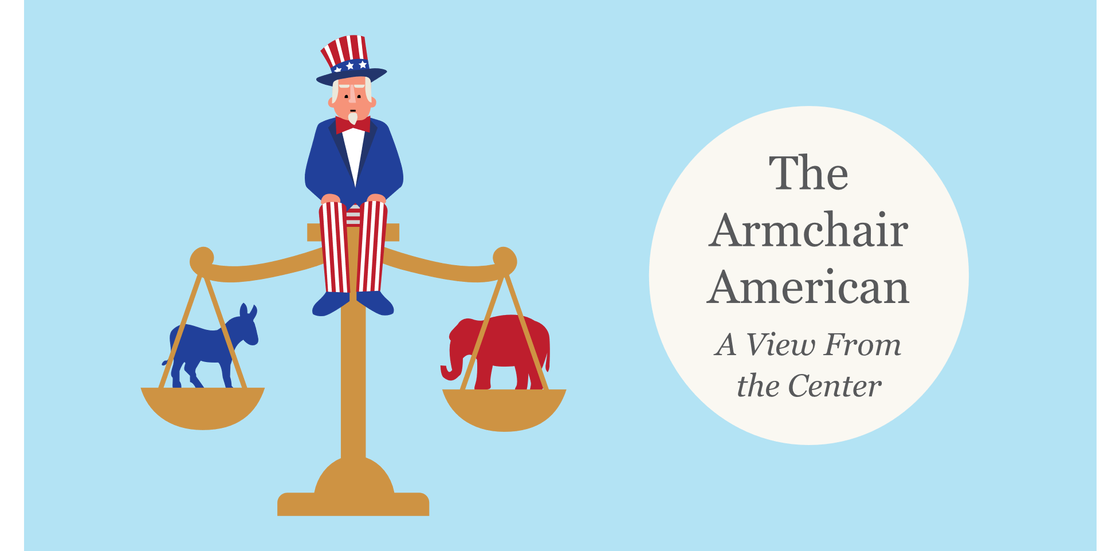
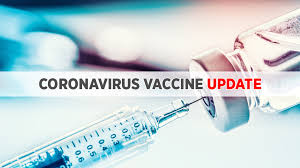
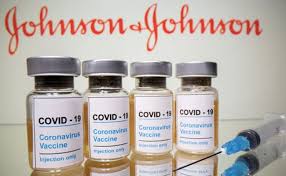
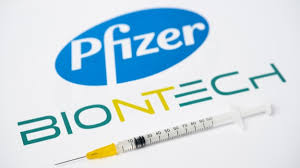
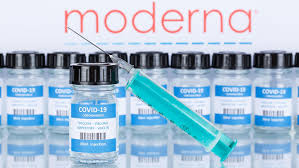
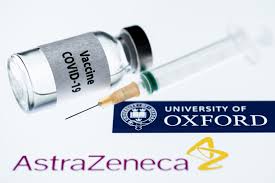
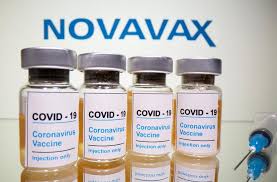
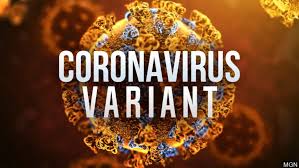
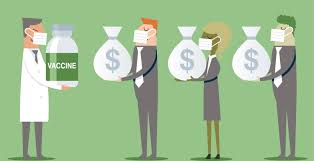
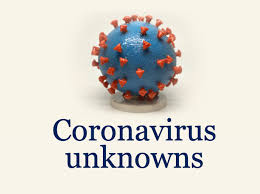
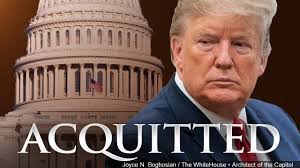
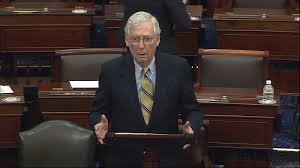

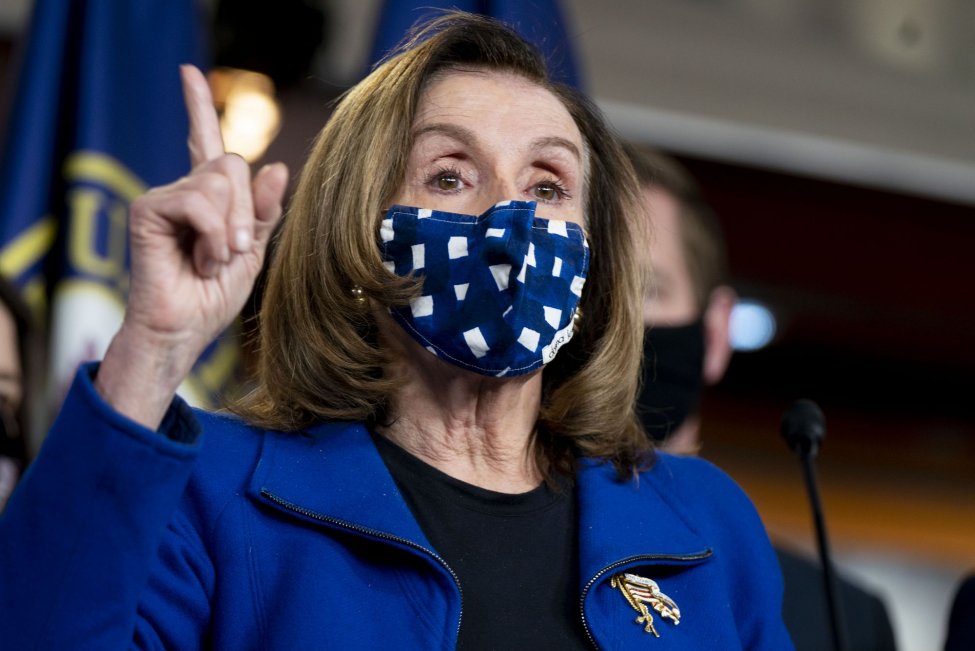
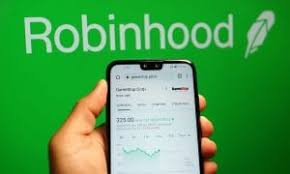
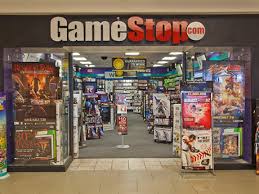
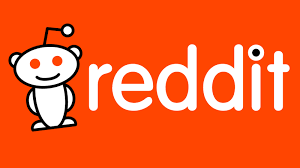

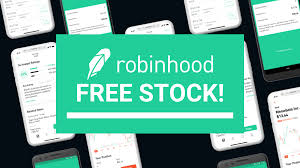
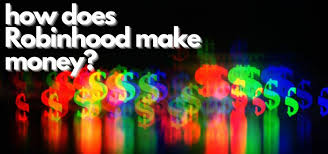
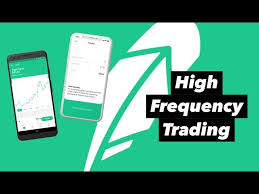
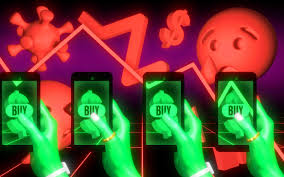
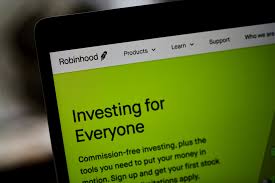
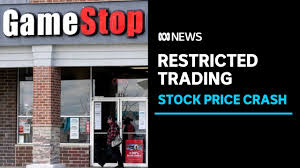
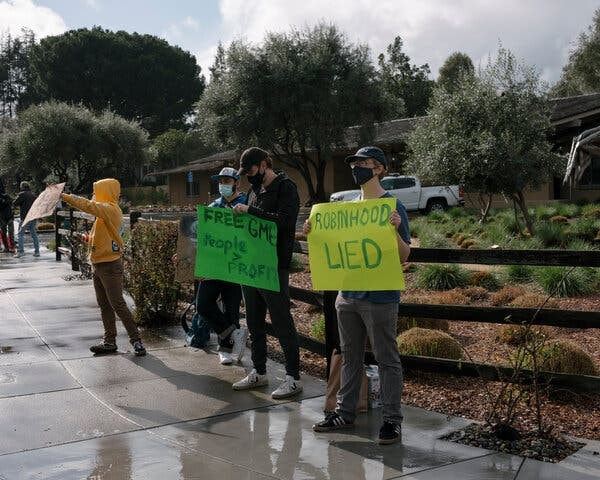
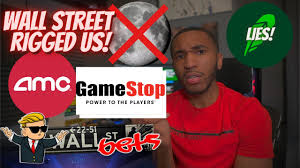
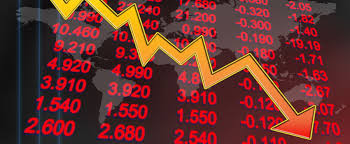
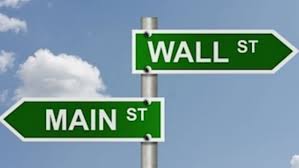

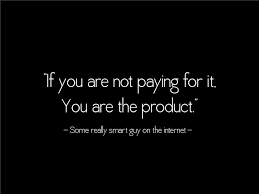
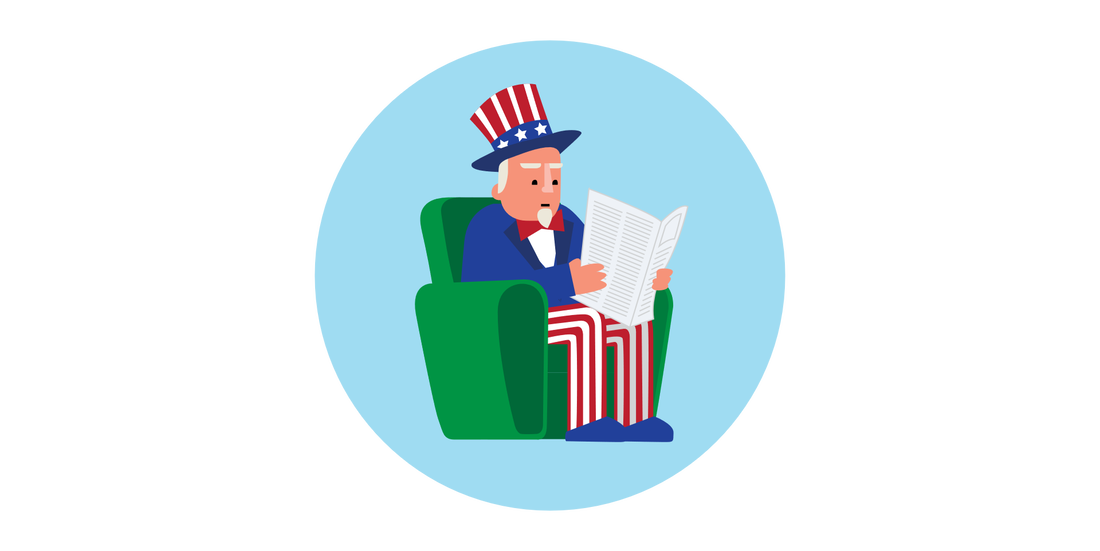
 RSS Feed
RSS Feed